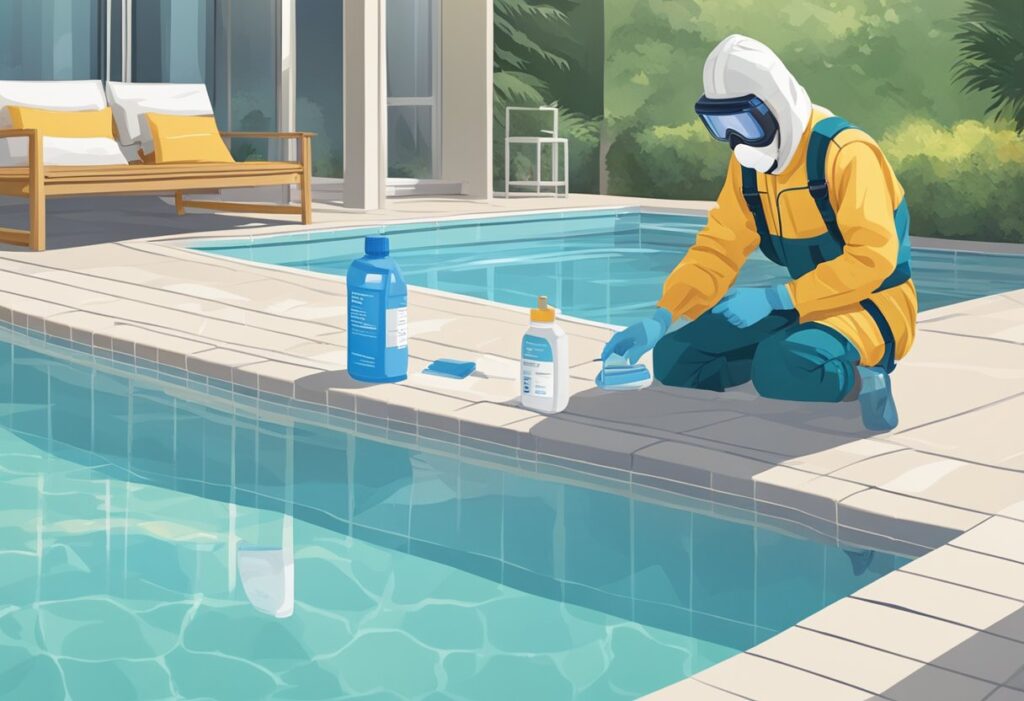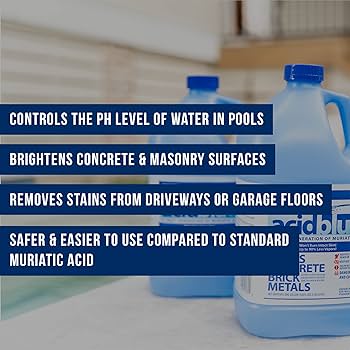Overview
Keeping your pool’s pH balance in check is essential to having safe, comfortable, and clean water. Muriatic acid is one of the best chemicals for regulating high pH levels in pool maintenance. Pool owners can safely reduce pH levels and stop dangerous germs or algae from growing by applying muriatic acid. This Article examines the historical significance of muriatic acid, how it aids in pool maintenance, and safe handling techniques to maintain the best possible condition for your pool.
An Overview of Muriatic Acid’s Use in Pool Maintenance

For many years, muriatic acid, sometimes referred to as hydrochloric acid, has been used to maintain swimming pools. The first documented use of this chemical, which was historically made from sulfuric acid and salt, were in alchemy and industrial cleaning in the sixteenth century. Muriatic acid became a standard option for balancing water chemistry as modern pool care advanced, particularly in regulating pH and alkalinity levels.
Muriatic acid: what is it?
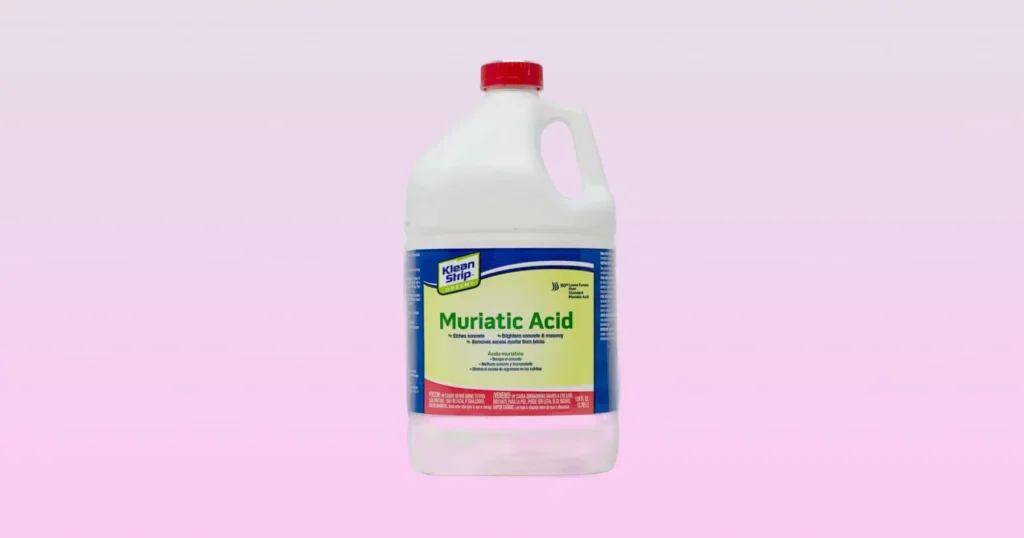
Hydrochloric acid (HCl), a strong and caustic chemical used for a number of industrial and cleaning applications, is diluted to create muriatic acid. It works wonders in pool maintenance to bring down the pH of overly alkaline pool water. An too high pH can cause a number of problems for swimmers, such as cloudiness, scaling, and discomfort. A safer and healthier swimming environment is guaranteed when muriatic acid is used and dosed appropriately.
The Significance of Muriatic Acid in Pool pH Control
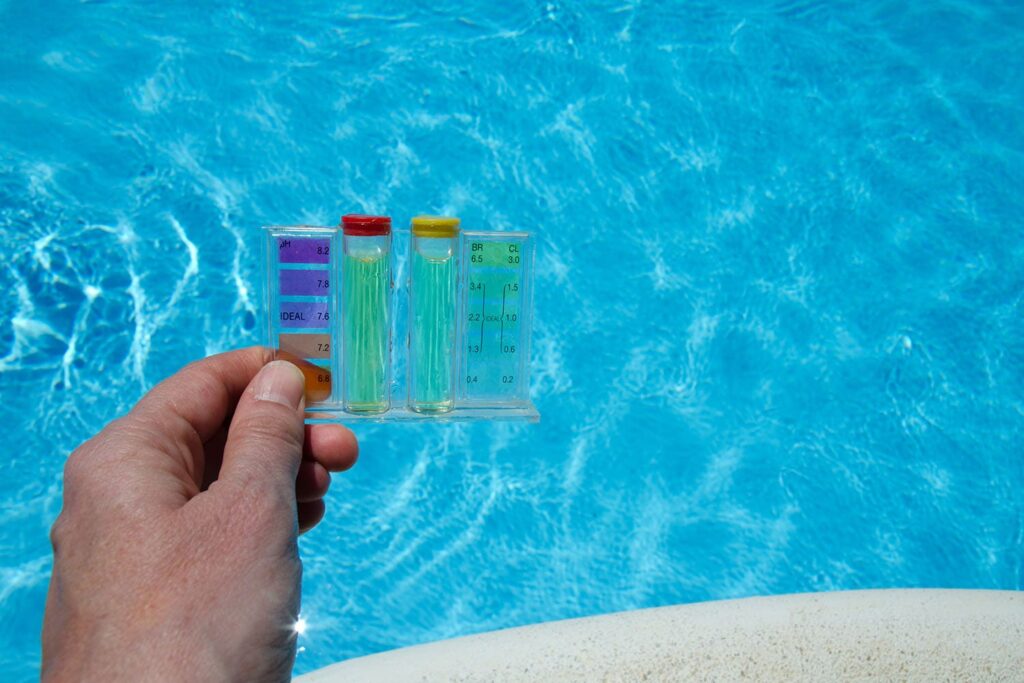
For pool water to remain healthy, the pH level must be kept between 7.2 and 7.8. A higher pH can make chlorine less effective, which could result in bacterial development and other issues with the water. Pool treatments with muriatic acid aid to reduce pH and guarantee that chlorine functions well to maintain cleaned water.
How Pool Water Is Affected by Muriatic Acid
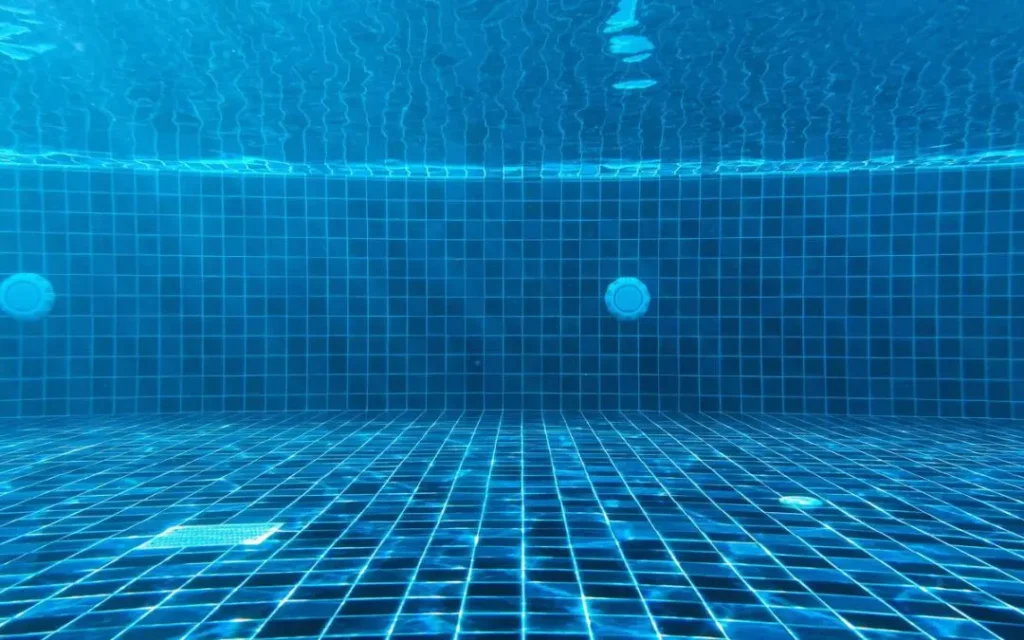
By neutralizing the alkalinity in pool water, muriatic acid lowers the pH to a more tolerable range. A better balance is achieved when the acid is added in small amounts since it breaks down carbonate molecules that raise pH. This procedure reduces scaling, enhances water clarity, and shields the pool’s surface from possible harm brought on by excessive alkalinity.
The Security of Muriatic Acid Use in Poo
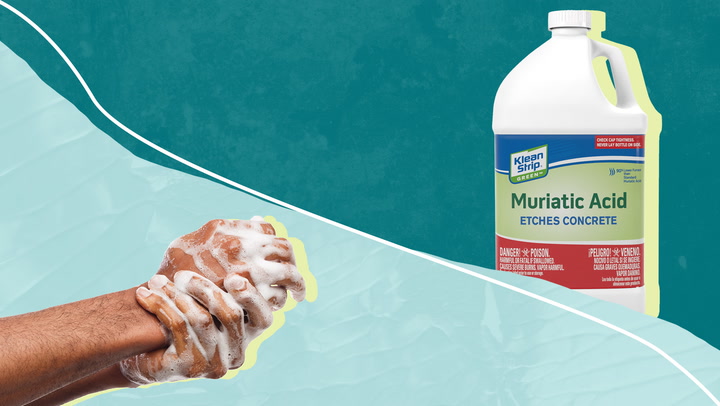
Muriatic acid works well, but it’s a dangerous substance that needs to be handled carefully. When adding acid to their pools, pool owners must always wear safety goggles, gloves, and clothing. To prevent spills or mishaps, it is crucial to adhere to the manufacturer’s dilution guidelines and make sure the chemical is introduced gradually. Another important safety precaution is to keep muriatic acid out of the reach of children and pets.
How to Fill Your Pool with Muriatic Acid
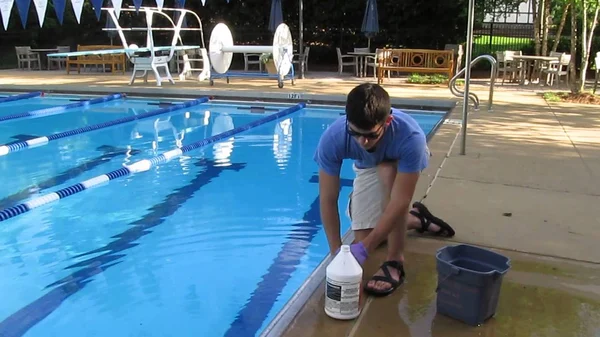
To get the right dosage, you should check the pH of the pool before adding muriatic acid. Based on the size of the pool and its current pH, a pool calculator can be used to estimate the amount of muriatic acid required. To guarantee even distribution, gradually pour the diluted muriatic acid along the pool’s edge while the pump is operating. After that, let the water run for at least half an hour before doing another pH test.
The Value of Consistent Testing
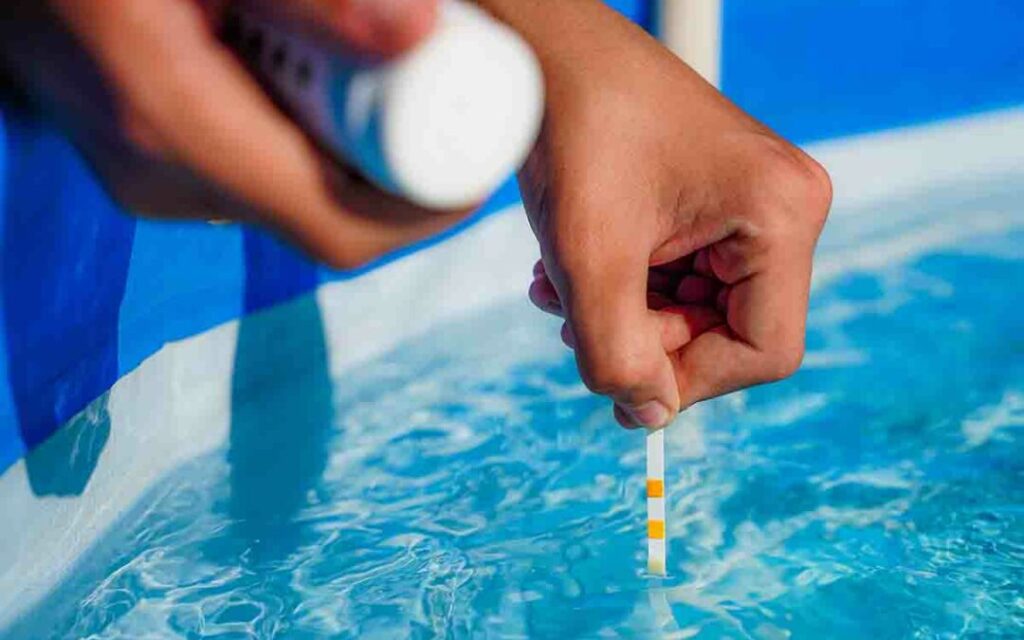
Muriatic acid is a continuous solution for pool maintenance. Frequent pH level testing guarantees that the water stays balanced throughout time. An excessive amount of muriatic acid pool treatment can lower the pH too much, producing caustic water that can harm pool surfaces and equipment. Testing frequently guarantees that necessary corrections are done.
Comparing Muriatic Acid with Other pH Reducers for Pools
Muriatic acid and other pH reducers, like sodium bisulfate (dry acid), are frequently contrasted. Although both work well, muriatic acid is usually more affordable and has a quicker half-life. For pool owners who are uncomfortable with stronger chemicals, sodium bisulfate is a common substitute because it is less corrosive and simpler to handle.
Considerations of Muriatic Acid in the Environment
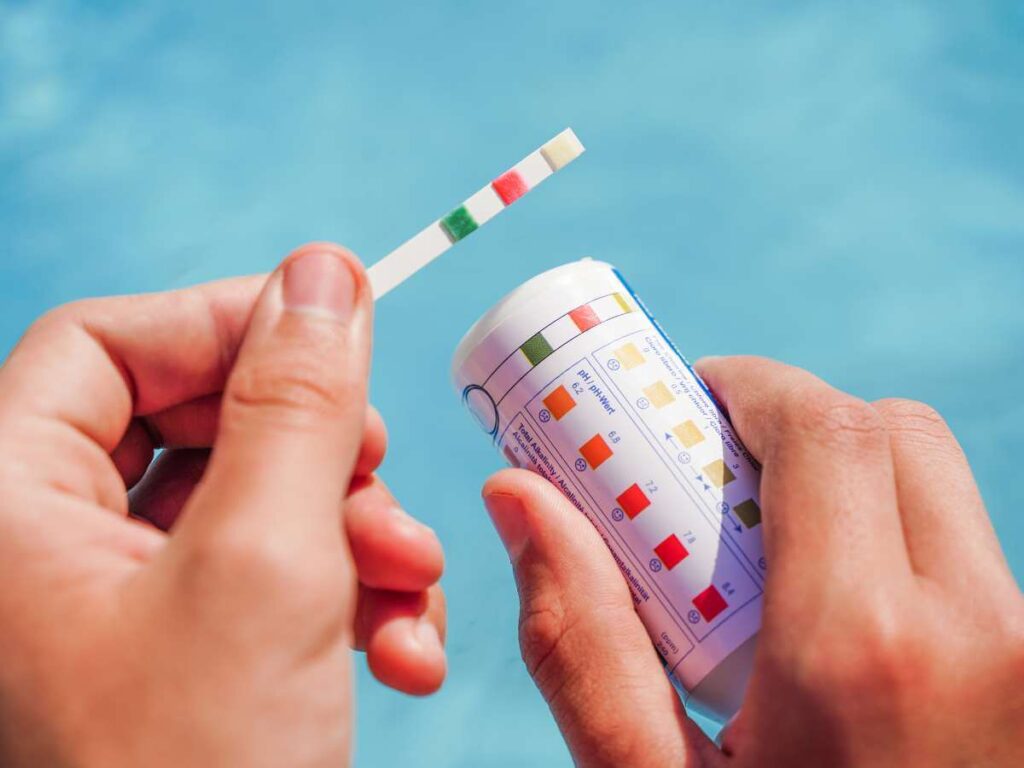
Taking into account muriatic acid’s effects on the environment is another aspect of responsible use. Because the chemical can damage aquatic life, it should never be used excessively or allowed to infiltrate natural water systems. Its environmental impact can be reduced by properly disposing of leftover muriatic acid and rinsing supplies.
In conclusion
By adding muriatic acid to your pool maintenance regimen, you can guarantee a more enjoyable swimming experience and greatly enhance the water quality. This potent substance increases chlorine’s efficacy and inhibits common problems including scaling, cloudiness, and bacterial development by safely reducing pH levels. However, keeping a healthy and balanced pool environment requires careful handling and routine testing.
Questions and Responses
How frequently should I treat my pool with muriatic acid?
A: The pH levels of the pool determine how frequently muriatic acid pool treatment should be added. When the pH rises and requires adjustment, routine testing will help identify the cause.
Is it possible to clean pool surfaces using muriatic acid?
A: In order to prevent harm to the pool’s materials, muriatic acid should be used cautiously and at the right dilution to remove tough stains from pool surfaces.
Is it dangerous for swimmers to consume muriatic acid?
A: Muriatic acid is safe for pool water when applied appropriately. However, undiluted acid should always be handled carefully because direct contact with it can be harmful and result in burns or discomfort.
Is it possible for muriatic acid to decrease both pH and alkalinity?
A: Muriatic acid does indeed reduce alkalinity and pH. Muriatic acid can be used in conjunction with other chemicals to modify just alkalinity without appreciably altering pH.
If I inadvertently put too much muriatic acid in my pool, what should I do?
A: Test the water and progressively increase the pH by adding an alkaline material, such as sodium carbonate (soda ash), to rebalance the levels if too much muriatic acid is introduced.
You can maintain the pH levels of your pool water for a healthier and more pleasurable swim by adding muriatic acid to your routine pool maintenance. Just keep in mind that enormous power comes with great responsibility; the secret to proper pool care is safe handling and regular maintenance.








